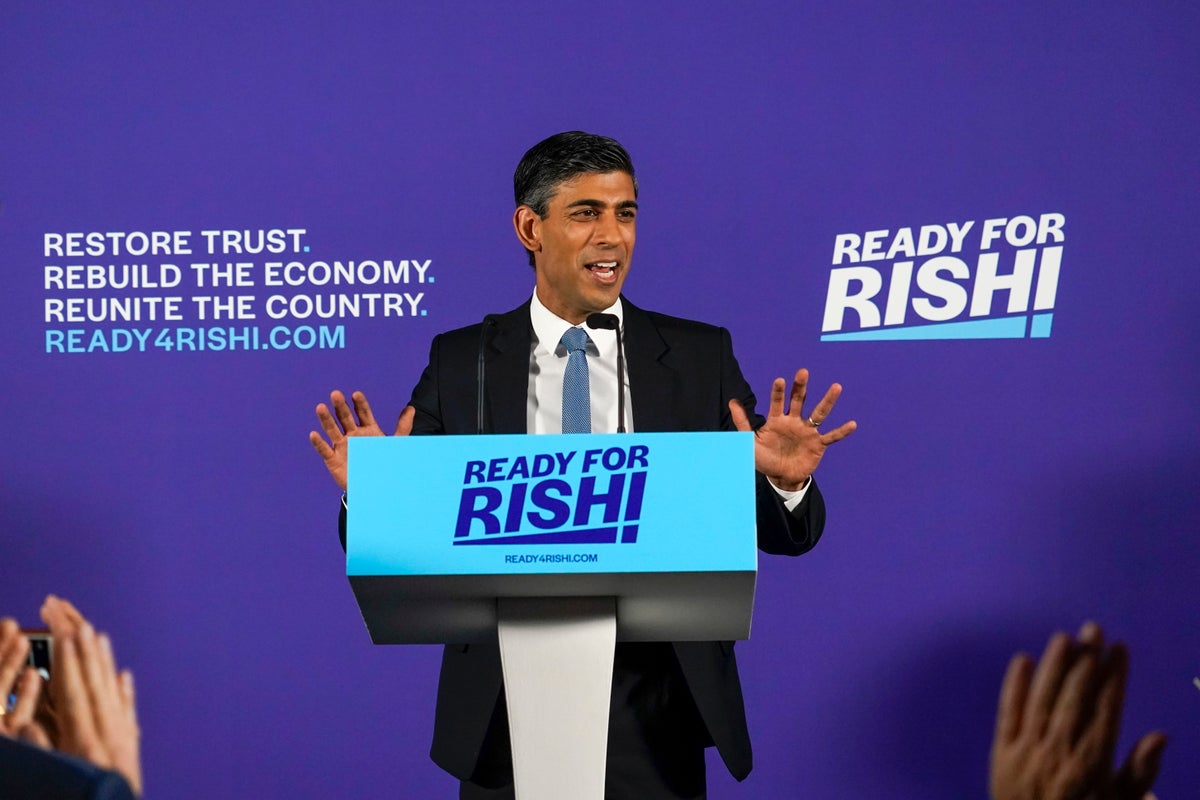
A top contender to replace British Prime Minister Boris Johnson accused opponents of “mudslinging” as the Conservative Party leadership contest ended a bruising first week on Friday with five candidates remaining
Penny Mordaunt, a junior government minister and Royal Navy reservist who is little known to the general public, has surged to become the bookies’ favorite to become Britain's next prime minister. Former Treasury chief Rishi Sunak remains the official frontrunner, with the most support from Conservative lawmakers in the voting so far.
Voting by Conservative legislators is due to continue next week until there are two candidates, who will face a runoff vote among all Conservative party members. The winner of the party race is to be announced on Sept. 5 and will automatically become prime minister.
Mordaunt is second, while Foreign Secretary Liz Truss is in third place and seeking to become the unity candidate for those on the party’s right wing who worry that Sunak lacks commitment to cutting taxes.
The contest has turned nasty.
Jacob Rees-Mogg, a Cabinet minister who supports Truss, called Sunak a “socialist” because of the billions he spent to keep the economy afloat during the coronavirus pandemic. Another Truss supporter, former Brexit negotiator David Frost, claimed Mordaunt “did not master the detail” when she worked in his department and had to be moved to another job.
Mordaunt urged the party to run “a positive contest.”
“I don’t want mudslinging,” she said, adding that opponents were “trying to stop me getting into the final two,” when a winner will be decided by Conservative Party members.
Since Johnson resigned as party leader on July 7 after months of ethics scandals, a field of 11 candidates to replace him has been winnowed down to five.
Sunak, whose resignation as finance minister last week helped topple Johnson, is running as an experienced minster who can guide the country through the economic turbulence caused by the pandemic and the war in Ukraine. But he is facing attack from Johnson allies who consider him a turncoat.
Truss is touting her international experience, as Britain’s top diplomat and a former trade secretary, and is vowing to take a tough line with the European Union in post-Brexit trade spats.
Mordaunt’s chief selling points are an air of normality and a distance from the scandal-tarnished Johnson administration. She did not serve in Johnson's Cabinet.
Also in the race are former Equalities Minister Kemi Badenoch, a rising star of the party’s libertarian right, and centrist backbench lawmaker Tom Tugendhat. Both are under pressure to drop out and throw their support behind one of the three front-runners but say they will fight on and try to build support through televised candidates’ debates over the weekend.
Johnson won the Conservatives a commanding parliamentary majority in 2019, but has been beset by accusations that he was too close to party donors, that he protected supporters from bullying and corruption allegations and that he misled Parliament about government office parties that broke COVID-19 lockdown rules.
He remains in office until his replacement is chosen.
Despite the clashes between the Conservative candidates, they agree on most issues. None of the contenders is seeking closer ties with the EU, and none has renounced Johnson’s most contentious policies: legislation to rip up parts of the U.K.’s Brexit deal with the bloc, and a plan to send some asylum-seekers arriving in Britain to Rwanda that is being challenged in the courts.
Tim Bale, a professor of politics at Queen Mary University of London, said the issues most important to Conservatives — above all Brexit — did not reflect the priorities of the country as a whole. That could be a problem for the party at the next national election, due by 2024.
“There’s always a potential mismatch between what a party wants — because a party is much more ideological — and what voters want,” Bale said. “(The Conservative Party) has elevated Brexit to sacred levels, and I think that sometimes blinds them to the economic realities that this country is facing.”







